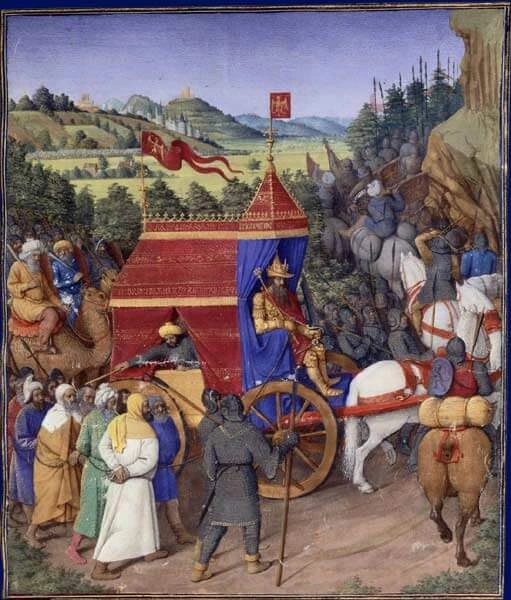27
Bom é para o homem suportar o jugo na sua mocidade.

In 1 Kings 22:48, Jehoshaphat seems to represent a corruption of the church, which takes place by falsifying truth. (Apocalypse Explained 514)
(Odkazy: Joel 3:12)
1356. That 'Terah' means idolatrous worship becomes clear from the derivatives mentioned from verse 20 down to this point. This second Ancient Church declined from a kind of internal worship, becoming adulterated as it did so until in the end it became idolatrous, as Churches usually do. They pass from internal things to external, ending up with mere externals when internal things have been erased. The fact that the same happened to this Church, even to the extent that a large part of them did not acknowledge Jehovah as God but worshipped other gods, is clear in Joshua,
Joshua said to all the people, Thus said Jehovah, the God of Israel, Your fathers dwelt of old beyond the River, Terah, the father of Abraham and the father of Nahor, and they served other gods. Joshua 24:2.
Now fear Jehovah, and serve Him in sincerity and truth, and put away the gods which your fathers served beyond the River, and in Egypt, and serve Jehovah. And if it is evil in your eyes to serve Jehovah, choose this day whom you are to serve, whether the gods which your fathers served who were beyond the River, or the gods of the Amorites. Joshua 24:14-15.
From this it is quite evident that Terah, Abram, and Nahor were idolaters.
[2] The fact that Nahor was a nation in which idolatrous worship existed is clear also from Laban the Syrian, who dwelt in the city of Nahor and who worshipped the images or teraphim which Rachel carried away with her, Genesis 24:10; 31:19, 26, 32, 34. And the fact that Abraham had one god, Nahor another, and Terah their father yet another, is clear from Genesis 31:53. It is also explicitly stated in Moses that Jehovah was unknown to Abram,
I, Jehovah, appeared to Abraham, Isaac, and Jacob as God Shaddai, and by My name Jehovah I was not known to them. Exodus 6:3.
From this it is evident how much this Church with this people declined into idolatrous worship, which is meant here by 'Terah'. And since Terah means that worship, so do Abram, Nahor, and Haran.